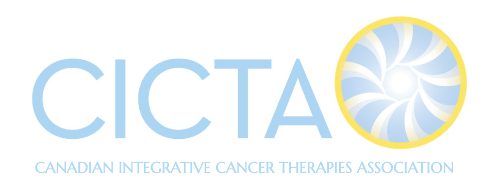Dr. Jack He, MD, MSc, RAc
Traditional Chinese medicine (TCM) was originated thousands of years ago through its meticulous observation and empirical working on healing theories and practices. With respect to cancer therapy, the philosophy of TCM proposes the concept of modulation and balance to restore and enhance the resistance of the human body to diseases through bidirectional modulation, holistic modulation, self-modulation, functional modulation, and as a result of optimizing the balance between Yin and Yang to achieve the purpose of treating diseases. From current TCM cancer therapy point of view, the great benefit of TCM may be able to improve outcomes for a given patient, however conventional medical treatment interventions have certain limitations. The extensive clinical studies indicated that the treatment interventions, including surgery, chemotherapy, radiotherapy, as well as biological therapy are generally cytotoxic in approach and therefore, carry predictable side effects based on the intervention. To reduce organ damages associated with radiotherapy, chemotherapy and surgery and enhance body cancer resistance, the best ideal approach is to apply conventional cancer interventions in combination with traditional Chinese medicine regimens. The result is a more comprehensive and synergistic therapeutic effect. When used in tandem with chemotherapy and radiotherapy, Chinese herbal medicine based on syndrome differentiation can control and minimize the side effects of chemical drugs and radiation and may enhance their therapeutic effects as well as increase survival rates and improve quality of life, sometimes dramatically. Traditional Chinese Medicine (TCM) can provide an important collaborative resource to link with conventional cancer treatment. Traditional Chinese medicine (TCM) may be integrated with conventional Western medicine to enhance the care of patients with cancer.
Unlike the way orthodox Western medicine looks at the human body, TCM views a person’s health in a holistic fashion that is “Holistic Concept” and “Syndrome Differentiation”. The philosophy of TCM recognizes human body as an entity that centered with five organs and linked with the Meridians, Qi and Blood networking from interior to exterior and top to bottom. TCM also recognizes “People are viewed as an inseparable part of the universe”, that the human body is a small universe with a set of complete and sophisticated interconnected systems, and that those systems usually work in balance to maintain the healthy function of the human Body, and “people are socially thriving but not socially depriving” reflects the classical Chinese belief that the life and activity of individual human beings have an intimate relationship with the environment at all scales. Therefore, the knowledge of TCM against diseases are mainly originated through its meticulous observation of the nature, the social environment, and the overall symptoms of human body, namely through observation, auscultation and olfaction, inquiry and pulse diagnosis to interpret the available data comprehensively and then predict the changes of balance of Yin and Yang, and differentiate the state of cold, heat, deficiency and excess, eventually diagnose the syndromes of the disease. This holistic, macroscopic, interrelated, dynamic, comprehensive, systematic analysis and understanding of disease method, namely highly integration of holistic concept, systemic concept and dialectical concept, are the essential features of TCM philosophy.
Different from TCM, Western Medicine is an established human medical science founded on the development of modern natural science. Basically, modern medical clinical practice from the somatic point of view recognizes the knowledge of human anatomy in terms of structure and form of the body, science-based interpretation pathological and physiological changes, laboratory tests defined etiology and pathogens in clinical setting and diagnosis focusing on clinical objective symptoms and signs related to pathological end-organ damages. Western Medicine emphasizes on accurate diagnosis in terms of location and nature of disorder, consistency of local and whole body, structure and function, as well as interior and exterior, especially available quantitative diagnostic tools for certain diseases.
In fact, new clinical ideas have been established as both “Integration of disease-focused and symptom-focused treatment” and “Integration of Macro-symptom-focused and Micro-symptom-focused treatment” in clinical practice in integrated Traditional Chinese Medicine and Western Medicine setting. This novel philosophy not only has coped with the disadvantage of TCM in the microscopic understanding about diseases, but also made up the shortcomings of WM disease-focused strategy which neglected body’s whole response and the dynamic changes in the development of diseases.
It is worth to study the subject matter regarding how to take the advantage of the Traditional Chinese Medicine alongside conventional Western Medicine to enhance the care of patients with cancer. Firstly, integration of disease focused and symptom-focused treatment modality: based on the TCM symptom differentiation, some anticancer Chinese medicinal herbs were added in the TCM herbal formulation. The modality is quite common that many practitioners believe traditional Chinese medicine can often handle cancer on its own and is reported to enhance therapeutic effects with success in cases. Secondly, the integrative therapy of TCM in combination with WM: This modality is favorably introduced and the best results against cancer are obtained by means of a joint attack of combining Traditional Chinese Medicine and Western Medicine. Recent evidence suggests that many traditional Chinese medical therapies can be effective for the supportive care of cancer patients, can minimize the side effects of chemical drugs and radiation and may enhance their therapeutic effects as well as improve quality of life and increase survival rates. It is necessary to further study the cancer TCM syndrome differentiation principles in the future and encourage good quality clinical trials to evaluate the efficacy of integrating TCM into Western cancer care. The integrative therapy of TCM in combination with WM may be able to eventually dismantle pathologic matter.
Correspondence to: Jack He, MD, RAc, is the editor-in-chief of International Journal of Integrative Oncology. (Int J of Integrative Onc. 2009; 3(1):5-6)
Email: fuchangh@yahoo.com

